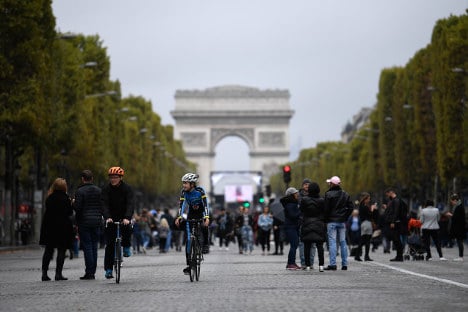Sunday marks the third time the French capital has experimented with a car ban, but it is by far the most ambitious with the zone set aside for pedestrians or cyclists covering the entire historic heart of the city – 105 square kilometres (40 square miles).
“This initiative requires an enormous amount of preparation,” city mayor Anne Hidalgo told Le Parisien newspaper on Sunday. “Particularly because this year the zone has been enlarged to the whole of Paris.”
Hidalgo, a Socialist, was elected in 2014 promising to tackle pollution in the capital and she has focused on building new bus and cycle lanes and reclaiming roads – leading critics to see her agenda as too radical and anti-car.”What's it for?”, grumbled Pierre Chasseray, the head of the lobby group “40 million drivers” when asked about the car-free day by AFP. “It's just PR to say that cars aren't good.”
The restrictions came into force at 11:00 am local time (0900 GMT) and will last until 6:00 pm (1600 GMT).
Although billed officially as “The Day without Cars”, some exceptions apply, meaning the streets are not completely deserted: taxis, buses and emergency or social services vehicles are allowed to drive.
Residents who need to use their vehicle to visit an elderly or handicapped person or with a genuine emergency are also allowed to ply the streets, though they must respect a 30 kilometre an hour (20 miles an hour) speed limit in place.
Hundreds of police and city officials have been deployed to check on drivers, with fines for unauthorised driving ranging from €90-€135 (105-159 dollars).
“The aim is simply to enjoy the city in a different way,” said Paris city transport official Christophe Najdovski on Friday. “It's a day that is meant to be educational, fun and friendly.”
By Marie Wolfrom



 Please whitelist us to continue reading.
Please whitelist us to continue reading.